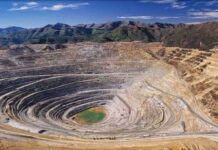ISLAMABAD: Pakistan can meet its household and industrial energy needs to a great extent if it establishes coal briquettes manufacturing plants in the mineral-rich provinces. The energy produced from the use of coal briquettes will help the country a great deal in saving foreign exchange spent on importing costly fuels for power generation.
Coal briquettes emit very low quantities of toxic gases, far below the standard set by the Environmental Protection Agency.
Coal briquetts can be made out of large quantities of biomass available in Pakistan like wood chunks, sawdust, coconut husk, etc. Mostly starch is used as a binder in the production of coal briquetts, and paraffin, petroleum solvents, borax, sodium nitrate, etc are generally used as igniters.
Sometimes, limestone is added to make the ashes white. Coal briquettes burn consistently, and are 40% more efficient than firewood, and produce very small levels of ash content – 2-10% lower than coal’s 20-40%.
Talking about the potential of coal briquettes in producing electricity, Muhammad Yaqub, the former general manager of geology in Pakistan Mineral Development Corporation, told WealthPK that coal briquettes could be manufactured by using indigenous sources. He said due to its exothermic nature, coal has a tendency to self-heat, so it is not safe and easy to stockpile coal. “Turning the coal into briquettes helps solve the issue as coal briquettes last longer and are well resistant to humidity and spontaneous combustion. They are easy to burn, cost-effective, homogenous in composition and easy to transport.”
He recalled that because of the known coal sources in the Balochistan province, the British installed a briquettes manufacturing plant in Quetta, brought from Burma after World War II. However, after the gas supply to Quetta in 1980, it was scraped as it was too worn out to be used. “Since then, there is no other regular plant operational in the country.”
Muhammad Yaqub also spoke about the official studies conducted to see benefits of producing coal briquettes. He said samples were taken for physico-chemical analysis of raw coal from different spots in Khyber Pakhtunkhwa province like Orakzai, Kurram and Kohat districts, etc. “Tests were carried out at the Fuel Research Centre of Pakistan Council of Scientific and Industrial Research in Karachi. A 500-kilogramme batch of coal briquettes was also manufactured there for further comparison tests.”
Muhammad Yaqub added that after physico-chemical analysis, another analysis of the smoke emissions from both raw coal and coal briquettes was carried out. (The results are shown in the above two tables)
Muhammad Yaqub strongly recommended the manufacturing of coal briquettes in Pakistan to overcome the energy crisis, especially in gas-starved areas. “Coal briquettes are ideal for being used for domestic and industrial purposes and will also minimise deforestation in the country.”
Yasir Shaheen Kahlil, assistant director at the Geological Survey of Pakistan, told WealthPK that globally, coal was an important constituent in the overall energy mix, and in Pakistan, it was found abundantly in different locations.
“A commercially viable coal briquettes plant needs to be established for producing electricity. It will not only provide a sustainable livelihood source to the mining people, but will also play an important role in coping with the energy needs of the country.”
Falak Iltaf, assistant manager of health, safety, and environment, a wing of Mineral Development Corporation of Pakistan, told WealthPK that coal deposits in Balochistan met the standard of quality but the level of production was too low. “If proper infrastructure for mining is developed, it will help mine the coal regularly in sufficient quantities with less labour cost. Sor range, Shahrug, Degari, etc are such mining spots where coal briquetting can be established.”
In 2021, with $444 million in value, China was one of the leading exporters of coal briquettes and other fuels manufactured by coal globally. The international coal briquettes market is expected to hold a value of $2.27 billion in the current year.
Pakistan can outsource Chinese experience to help in establishing coal briquettes manufacturing plants in Pakistan.




